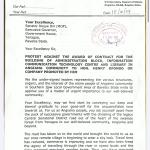The World Bank has approved three major operations worth $1.57 billion to support Nigeria in strengthening human capital and building resilience to climate change.
The funds will target critical sectors, including healthcare for women, children, and adolescents, and improving dam safety and irrigation to address the effects of floods and droughts.
The new financing includes $500 million for the HOPE-GOV program, which focuses on improving education and healthcare delivery governance.
Another $570 million is allocated for the HOPE-PHC initiative to strengthen primary healthcare. Additionally, $500 million will go towards the Sustainable Power and Irrigation for Nigeria (SPIN) project, designed to enhance dam safety and irrigation for better water management and agricultural productivity.
The HOPE-GOV and HOPE-PHC programs will address governance challenges in education and healthcare, helping to improve service delivery in these sectors.
The HOPE-PHC initiative is expected to benefit 40 million people, particularly vulnerable populations, by reducing maternal and child mortality and improving access to essential healthcare services.
The SPIN project will improve water management and protect communities from floods and droughts, benefiting nearly a million people, including farmers and livestock breeders.
It will also develop a master plan for hydropower and explore public-private partnerships for future hydropower projects.
World Bank Country Director for Nigeria, Dr. Ndiamé Diop, emphasized the importance of these projects, stating that they will increase opportunities, boost productivity, and reduce poverty across the country.












